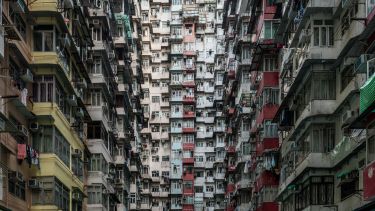Urban Inhabitation and the Urban Technical aims to push beyond some of the conventional notions concerning habitability, with a particular focus on how an expanded sense of technicity might open up new horizons for thinking about what the urban could be, and how it is actually lived by those often considered most marginal to it.
In March 2022 we held an open dialogue with international interdisciplinary scholars who offered responses to the UI’s prospectus, which acted as an invitation for reflection and engagement.
The session was held online and video recorded. We are pleased to say that the videos from the event are now available on our Youtube channel, in two parts.
In Part 1, Ash Amin, University of Cambridge, drew attention to the potential synergy between the technological city and the city of craft, rather than positioning them in asymmetric opposition. He proposed that greater attention is given to vernacular or experiential knowledge in the city, potentially through the visualisation of an archive of settlement or inhabitation.
Beth Coleman, University of Toronto, framed her response within the context of the neoliberal smart city, data colonialism and the opportunities to ‘wild’ artificial intelligence. Beth reflected on her work with the city of Toronto around the development of digital infrastructure plans, Sidewalk Labs and forms of activism that push back at extractive data practices.
Brian Larkin, Colombia University, challenged an emphasis on novelty and drew attention to the complex interactions between layers of older conditions in the city, in which infrastructure is a palimpsest. He left us reflecting on the need to move away from a hard dichotomy between a supposed advanced Western world governed by robotics, AI and algorithms, and a ‘non-Western’ world governed by hacking and makeshift infrastructure.
Debra Shaw, University of East London, asked how urban spaces are designated uninhabitable and for whom or what? Taking us into architecture and post-human politics, she drew attention to how cities can be designed for particular bodies – white, able and male – determining other bodies and their modes of inhabitation. She reflected on the increase in domestic violence during COVID-19 and the need to revise what we think of as ‘home’, given the mutual constitution of bodies and buildings.
Jennifer Grabys, University of Cambridge, welcomed the prospectus’ challenge to the politics of knowledge production and the kinds of research collectives, arrangements and experimentations required for interdisciplinary dialogue. She responded directly to the ideas around sensing, sensibilising and knowing through reflecting on her own work with citizens’ sensing air pollution in terms of the politics of acceptance and dismissal of citizen expertise.
Part 2 took off with Joanna Zylinska, Kings College London, who contributed a distinctive feminist eco-eco punk take on how to live in a ‘media dirty’ world. She proposed the concept of eco-eco punk as a way of breaking out of the echo chamber of conventional responses to the Anthropocene, encapsulating the multiplicity of actors, humans and non-humans in the city.
Kavita Philip, University of British Colombia, urged not to forget history in the search for novelty, as the roots behind popular notions of ‘how we got here and what we are up against’ are often implicit and poorly articulated. She cautioned against replacing a top down with a bottom up logic, in the context of the hollowing out of the state by corporations and the military and drew on her work in Mumbai to foreground an array of issues, from extraction, platform capitalism and the unmaking of class.
Luciana Parisi, Duke University, questioned the categories of home, dwelling, habit and habitation, underpinned by a concern to locate the possibility of critique. She reflected on the potential and problems within the idea of cosmotechnics, as an anti-universalist, pluralist response to technological change, but also an invitation to rethink abolitionist practices.
Nerferti Tadiar, Colombia University, focussed on the disposability of people in an era of capitalist platform economics as a key part of the dominant urban technical shaping contemporary conditions of inhabitation in metropolitan space. Drawing on experiences in the Philippines, she highlighted the need for cultural technical literacy in and study of the different forms of expertise and strategies that the marginalised possess.
Philip Butler, Iliff School of Theology, concluded the session with a black, post-feminist approach which differentiated between humans and people, in which the former is a universal, totalising concept which tends to favour the global majority, whilst the latter draws attention to how people show up in various urban spaces. His take on data politics highlighted the vibrancy of black culture as sites for creativity and invention.
Find out more about the respondents here and the recordings can be accessed here.

